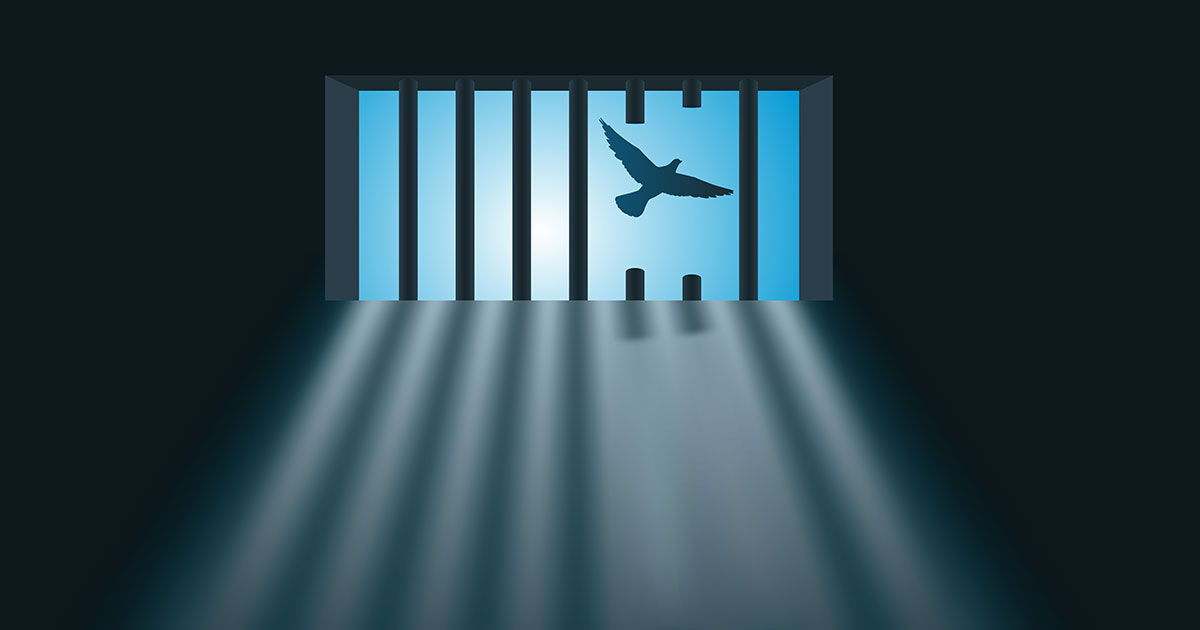
July 20, 2022 – Wisconsin law affords some individuals the opportunity to petition a court to expunge, or remove, a past criminal conviction from the public record.
If an expungement is ordered, the clerk of the court seals the case file and destroys the associated conviction records. Importantly, the expungement does not vacate or set aside a conviction – it merely strikes the records associated with the conviction from public view.
Nevertheless, expungement may help a client avoid some of the collateral consequences of a conviction history in the following areas:
looking for employment;
applying for rental housing;
seeking business, professional, or recreational licensure; or
any other opportunity that may involve a criminal background investigation.
There are also limited circumstances where an individual may request to have their Wisconsin arrest records removed from public viewing.
This article describes the process in Wisconsin for seeking the removal of records relating to a client’s adult or juvenile criminal conviction, or arrest, and the information resources available to assist you in this process. While this article focuses primarily on Wisconsin, brief attention to federal arrest and conviction records is included in contrast to state law.
Wisconsin: Expungement of a Criminal Conviction
The availability of expungement is limited in Wisconsin. In most cases, expungement is only permitted for misdemeanors or low-level, nonviolent felonies committed by the offender while they were under the age of 25.1 Most expungement orders may only be ordered at the time of sentencing and only if the court finds that (1) the offender will benefit from expungement and (2) that the order will not harm society. An expungement order may be contingent upon the offender successfully completing all terms of their sentence, including probation.
 Wendy Smith is a reference librarian and adjunct associate professor of law at Marquette University Law School in Milwaukee, where she teaches introductory and advanced legal research. She is an active member of the State Bar of Wisconsin as well as a member of the Law Librarians Association of Wisconsin (LLAW). LLAW's Public Relations Committee coordinates regular contributions by its members to InsideTrack.
Wendy Smith is a reference librarian and adjunct associate professor of law at Marquette University Law School in Milwaukee, where she teaches introductory and advanced legal research. She is an active member of the State Bar of Wisconsin as well as a member of the Law Librarians Association of Wisconsin (LLAW). LLAW's Public Relations Committee coordinates regular contributions by its members to InsideTrack.
Criminal conviction expungement in Wisconsin is governed by statute:
The procedural mechanism for requesting expungement is a Petition to Expunge. The following official circuit court forms are available to assist you in this process:
For more detailed information on criminal recordkeeping in Wisconsin and the requirements for seeking expungement, see the following:
For guidance on handling expungement hearings, the Wisconsin Criminal Defense Manual from State Bar of Wisconsin PINNACLE© has chapters on negotiating a plea, preparing for sentencing, and court and law-enforcement records. The book also discusses the initial client interview and criminal procedure outline and checklists.
Wisconsin: Effect and Limitation of an Expungement Order
Wisconsin Supreme Court Rules, Chapter 72, governs the retention and maintenance of court records. The following provisions apply to expunged records:
SCR 72.05(2)(L) (requiring all court records maintained on electronic/optical storage systems, offline storage, or backup media that have been ordered expunged to be sealed or removed, index to the record obliterated, or otherwise restricted from access)
SCR 72.06 (directing the clerk of the court to destroy expunged court records and seal the entire case file)
As a result, court records ordered to be expunged will not be available through the Wisconsin Circuit Court Access website.
Importantly, expungement only pertains to court records. Other records of the conviction, arrest, or criminal investigation are not affected by an expungement order and may be discoverable by third parties. For instance:
Also note that, if expungement is granted by a Wisconsin court, the conviction may still be considered for federal immigration purposes in most cases.
For more information on the immigration implications of criminal convictions and expungement, see Immigration Consequences of Wisconsin Criminal Offenses from State Bar of Wisconsin PINNACLE.
Obtaining Wisconsin Criminal Conviction and Arrest Records
Need access to an individual’s criminal history records to assess whether expungement may be available?
The Wisconsin Department of Justice (WDOJ) maintains the Crime Information Bureau Criminal History Database pursuant to Wis. Stat. sections 165.83 and 165.84. The Criminal History Database contains detailed information of arrests, charges, prosecution, court findings, sentences, and correctional facility admissions and releases.
Records maintained by the WDOJ in this system might not contain records held by local police departments, courts, or federal agencies.
Challenging Records in the Wisconsin Criminal History Database
The WDOJ Crime Information Bureau permits an individual to request the removal of an arrest record from the Criminal History Database when an individual has been cleared of charges and meets the criteria specified in Wis. Stat. section 165.84(1). For additional information, see:
An individual may also request to challenge a criminal history record on the basis of mistaken identity, if the individual was a victim of identity theft or has a similar name to another individual listed in the database. For additional information, see
Expungement of Federal Convictions and Arrest Records
Under federal law, expungement of a federal conviction is extremely limited. Expungement must be expressly authorized by statute. However, in some federal circuits, expungement may be permitted without express statutory authorization under a federal court’s ancillary jurisdiction. For more information on the availability of federal expungement, see:
Charles A. Wright, et al., Federal Practice and Procedure § 3523.2 (3d ed. 2008) (“‘Ancillary’ Jurisdiction Over Related Proceedings”).
George L. Blum, Judicial Expunction of Criminal Record of Convicted Adult in Absence of Authorizing Statute, 68 A.L.R. 6th § 1 (2011).
Likewise, the ability to expunge federal arrest records is also extremely limited when the interests of justice clearly require expungement, such as arrests based on mistaken identity. For information on expungement of federal arrest records, see:
Wisconsin Legal Expungement Legal Aid and Clinic Resources and Pro Bono Opportunities
The Wisconsin organizations below offer limited legal assistance to low-income individuals seeking information about expungement and arrest record sealing.
Legal Action of Wisconsin: Barriers to Employment Services – Legal Action of Wisconsin may be able to assist low-income individuals with expungement, criminal record correction, and other barriers to sustaining employment.
Marquette Volunteer Legal Clinics – The MVLC’s volunteer attorneys and law students offer free expungement assistance by appointment only at locations in the Milwaukee area.
Milwaukee Justice Center Mobile Legal Clinic – In conjunction with the MVLC and Milwaukee Bar Association, the Milwaukee Justice Center’s Mobile Legal Clinic offers free expungement assistance in isolated neighborhoods in the Milwaukee area or remotely via video conferencing.
Urban League of Greater Madison: Legal Expungement Clinics – Free clinics are held regularly to assist Dane County residents seek removal of criminal conviction and arrest records, plus job seeking guidance and career training. Pre-registration is required.
LIFT Wisconsin – An online collaboration that provides efficient, technology-driven legal assistance to clear civil legal barriers to economic prosperity for Wisconsin families.
Lawyers for Learners – Offers free, confidential legal help for students and community members that includes assistance with criminal issues, among other matters.
For attorneys seeking pro bono opportunities for expungement assistance, Legal Action of Wisconsin offers periodic Virtual Expungement Clinics that offer shadowing and experience for attorneys new to this area of practice.
You can view additional expungement clinic volunteer opportunities via the State Bar Pro Bono Portal.
Where to Get Additional Information
The organizations below provide additional information on the collateral consequences of a criminal record in Wisconsin and in other jurisdictions.
Clean Slate Clearinghouse – The Clean Slate Clearinghouse, a project of the American Institutes for Research, is supported in part by the U.S. Department of Justice and U.S. Department of Labor to provide accurate and comprehensive information on juvenile and adult criminal record clearance in all U.S. states and territories.
Restoration of Rights Project: Wisconsin – The Restoration of Rights Project is a project of the Collateral Consequences Resource Center to provide information on restoration of rights in each state. This page includes information on restoration of rights and record relief such as pardon and expungement in Wisconsin.
Wisconsin State Law Library: Pardon & Expungement Research Resources – This compilation of resources relating to pardons and expungement in Wisconsin is curated by the law librarians of the Wisconsin State Law Library and offers links to related primary and secondary sources.
Don’t forget that a librarian can efficiently direct you to trusted legal practice materials. Reach out and ask your local law librarian for help with your research, or at these libraries:
Endnotes
1 Wis. Stat. § 973.015(1m)(a)-(b).
2 State v. Leitner, 2002 WI 77, 253 Wis. 2d 449, 646 N.W.2d 341.
3 Wisconsin Department of Justice Crime Information Bureau – Frequently Asked Questions.
